When is your baby ready to start solid foods?
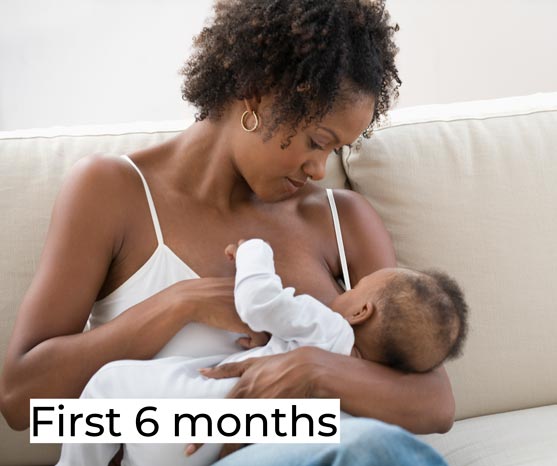
Your baby should have only breastmilk or infant formula until they’re ready for solids. This is around 6 months but not before 4 months.
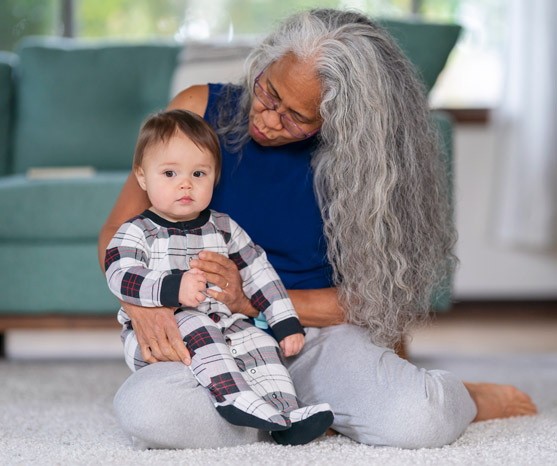
Before starting solids, your baby must be able to sit up with support and hold up their head by themselves.
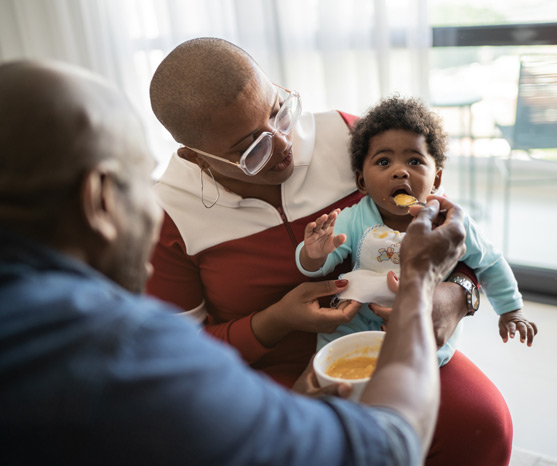
If your baby is ready to start solids, they might look at your food, reach for it, or open their mouth when you offer it.
What you need to know about starting solids

It’s best to offer solids when you and your baby are happy and relaxed, like after a feed of breastmilk or formula.
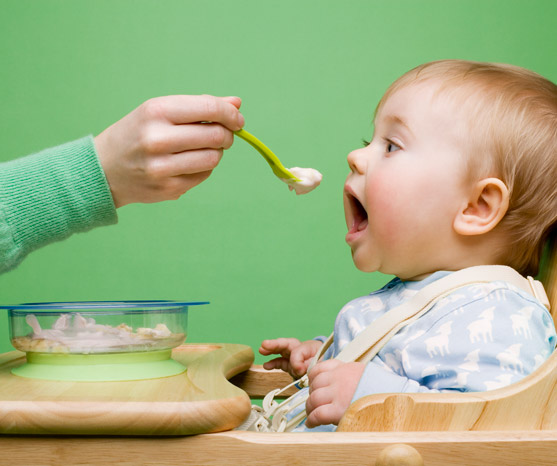
Offer 1-2 teaspoons of food to start with. Increase according to your baby’s appetite.

All first foods should be soft. Start your baby on pureed or finely mashed food. Your baby can move on to roughly mashed food and chopped food.
If your baby is breastfed, continue for as long as you and your baby like. If your baby has infant formula, they don’t need formula after 12 months.
Iron-rich foods and healthy foods for babies
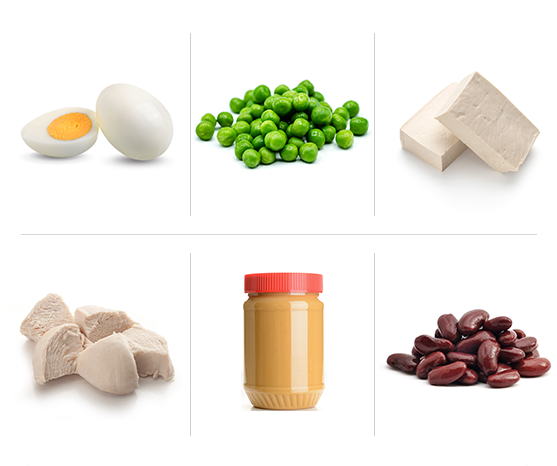
First foods should be rich in iron, like infant cereal. Also try cooked, minced meat, chicken, fish, tofu and legumes. From around 6 months, include allergenic foods, like cooked egg, peanut and other nut butters, dairy products and wheat-based breads.
Introduce allergenic foods one at a time. You can mix other foods together.
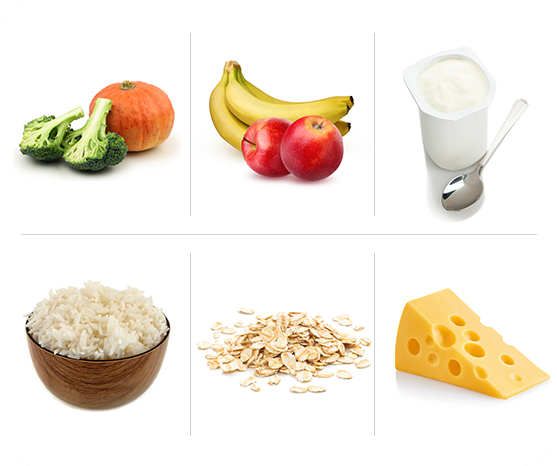
Along with iron-rich foods, include other healthy foods like vegetables, fruit and grains. For example, try pumpkin, broccoli, banana, apple, oats, rice, full-fat yoghurt and full-fat cheese.
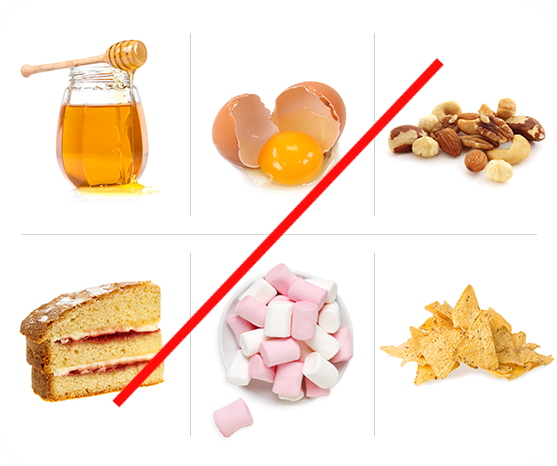
Avoid honey, raw or runny eggs, reduced-fat dairy, whole nuts, large seeds and similar hard foods. Try not to add fat, sugar or salt to home-cooked baby food, and avoid shop-bought food with these ingredients.